Competitive Analysis — Part 1 UX Knowledge Base Sketch
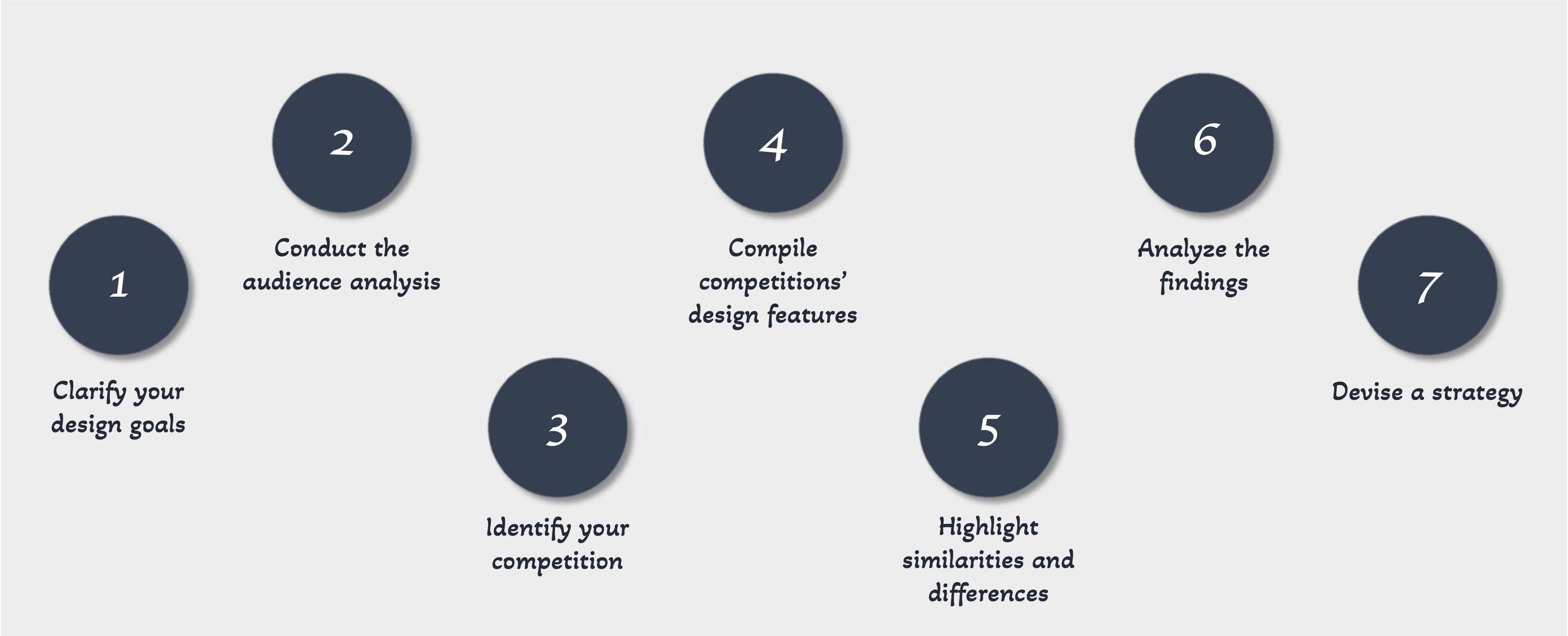
Competitive Analysis in UX Design Tips and Best Practices Ramotion Branding Agency
Competitive analysis is a UX research method that helps you understand how your product or service compares to your competitors in terms of features, strengths, weaknesses, and opportunities..
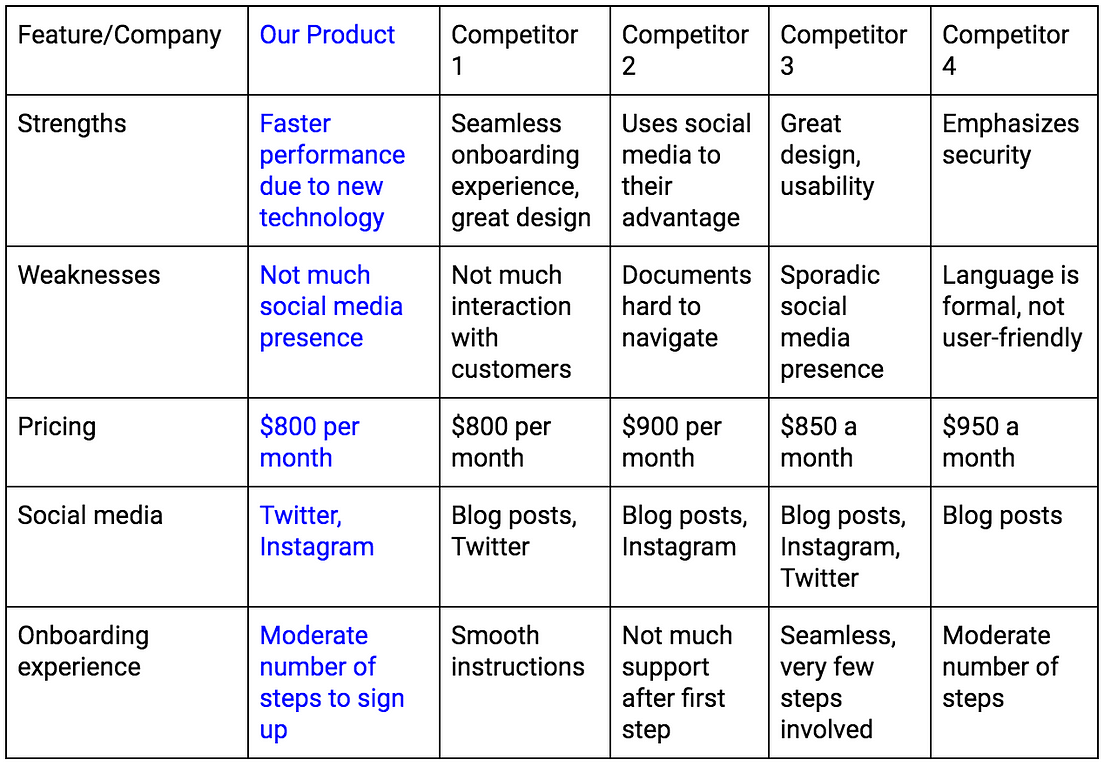
Top Things to Know About UX Competitive Analysis by UX
The UX competitive analysis is based on competitive research, a process of determining competitive product features using the competitors' experience. We learn their approach to the usability and attractiveness of the product (as well as separate features) and investigate what features are crucial for the business.

A Guide to Competitive Analysis for UX Design Adobe XD Ideas
A discussion on competitive analysis UX strategies brought to you by WANDR, ranked the best in UX strategy and design by Clutch. Competitive analysis for UX design gives businesses valuable insight into developing more effective product strategies.With UX competitive benchmarking and visual competitive analysis, we gain a better understanding of the market that your product will compete in.

Competitive Analysis in UX Design What For, When, and How To?
A UX competitive analysis is a technique that UX researchers use to understand the competition, identify opportunities, and find an edge. This analysis provides UX design teams with valuable insights to develop a UX strategy and enhance a product's user experience as well as business value.
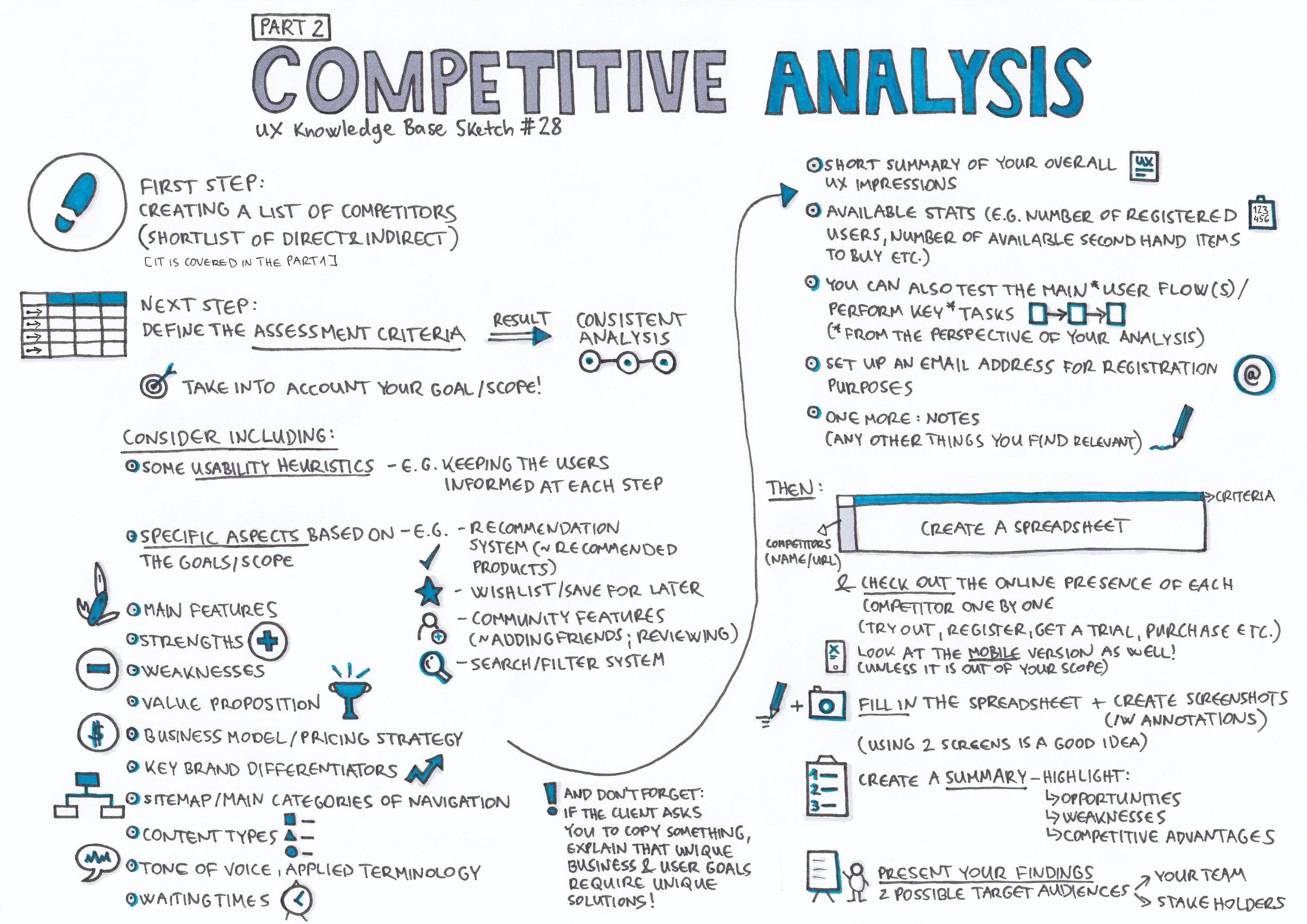
Competitive Analysis — Part 2. UX Knowledge Base Sketch 28 by Krisztina Szerovay UX
1 What is competitive analysis in UX and why is it important? In the world of UX Design, competitive analysis is a critical part of the research process. Whether it's a babysitting app, fintech dashboard, or e-commerce site, understanding the landscape of solutions is crucial to the foundation of the solution you are designing.

Going beyond the classic competitive analysis matrix — a UX case study by Smichel UX Collective
A UX Competitive Analysis is a step in the research process in which you evaluate all relevant design solutions performed by direct and indirect competitors in your domain. The Competition Analysis involves two critical stages you must complete if you want your research to be more than a formal process and insightful UX research.
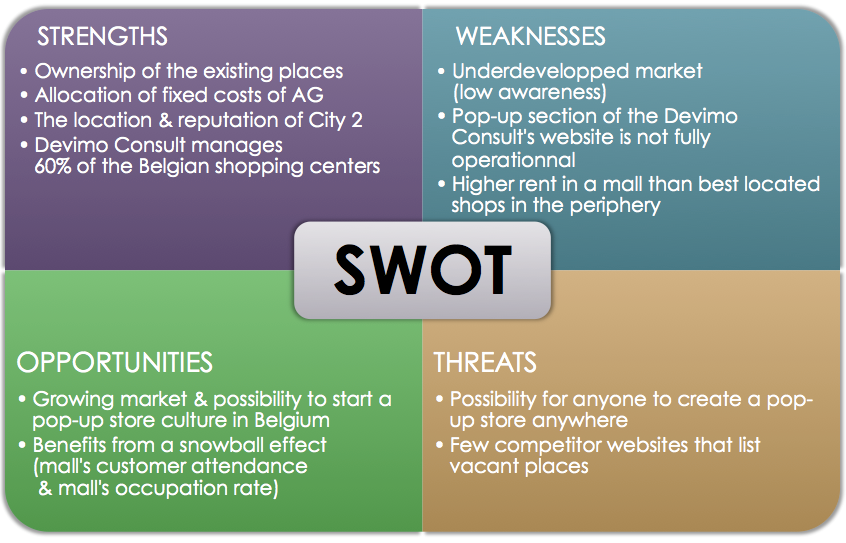
Top Things to Know About UX Competitive Analysis by UX
A UX or UI competitive analysis is a strategic process of analyzing the design solutions of the competitors. UI/UX designers identify and examine competitive designs to understand market trends and customers' reactions. This helps in creating effective solutions.
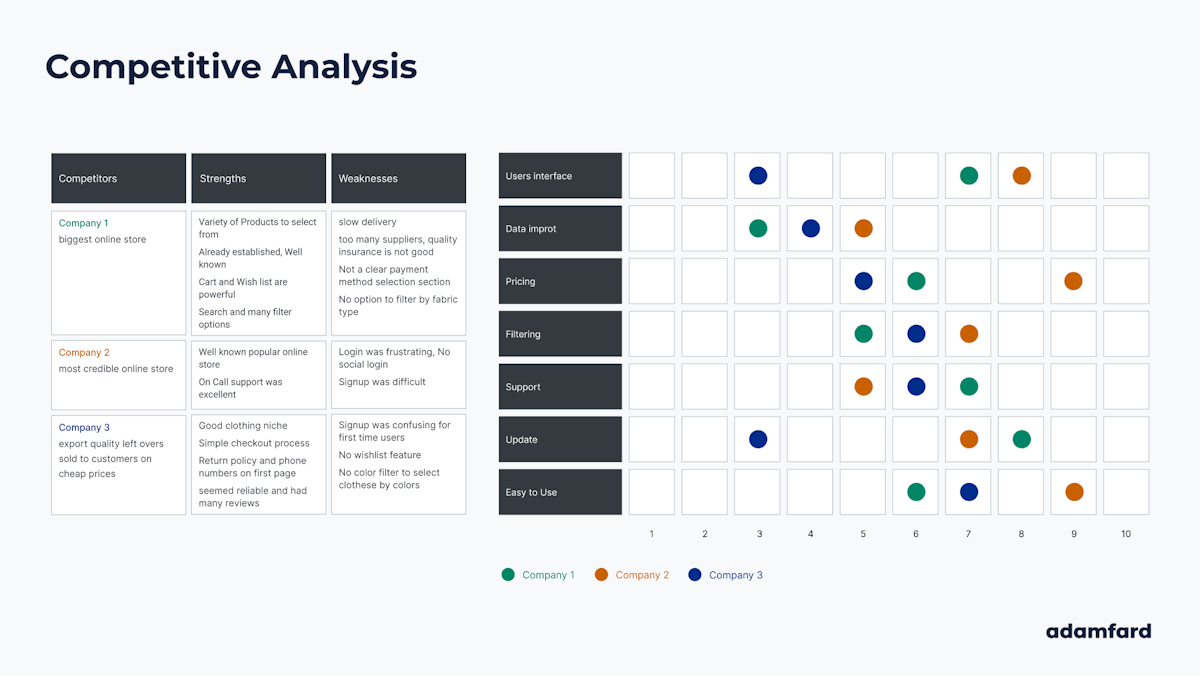
Our UX Design Process & Deliverables
What is Competitive Analysis in UX? From the functionality to the design details of an application, competitive analysis is the process of researching your market competitors. When you can assess your competition in-depth, you can identify where your product may have weaknesses.
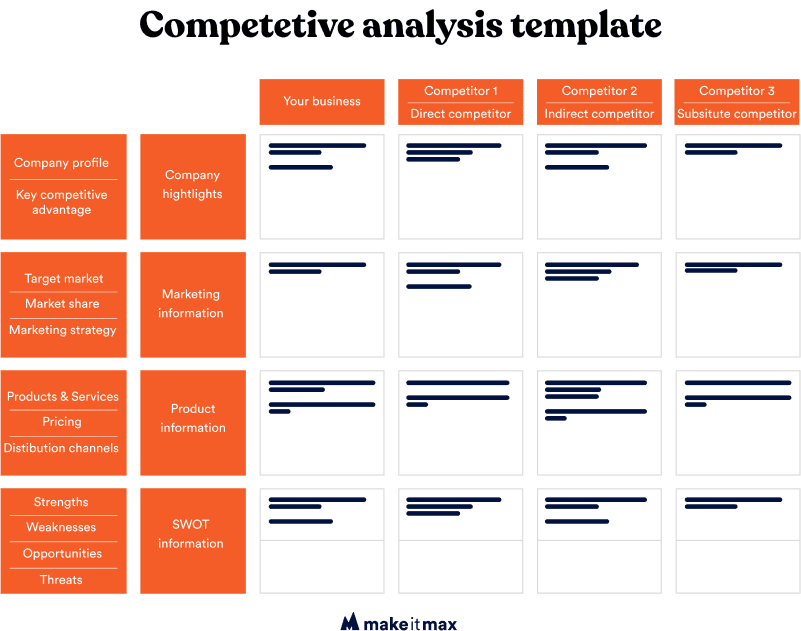
Competitor Analysis in UX design Why and how? Make it Max
What is Competitive Analysis in UX? UX competitive analysis is helpful for designers looking to gain insight into what works for the competition — and what doesn't. Competitive analysis is a user experience research method to better understand similar websites your users visit.

Competitive Analysis Template Master Design Blog Competitive analysis, Analysis, Competitor
A competitive analysis for UX research focuses on the similarities and differences between the user experience of your product or service compared to a competitor's product. Conducting a competitive analysis may sometimes be confused with a one-off study or benchmarking.
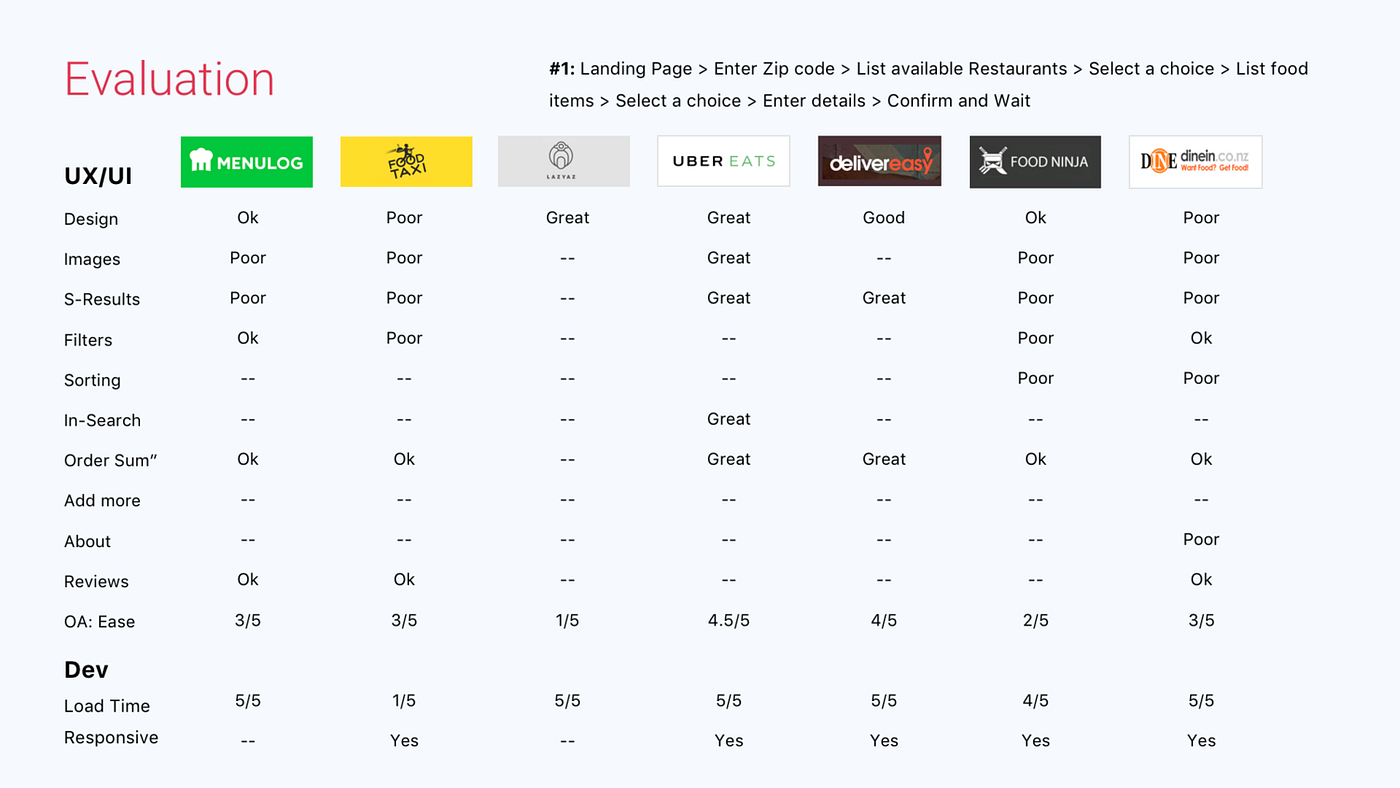
Top Things to Know About UX Competitive Analysis by UX
Performing a competitive analysis in UX design helps companies identify competitors' strengths and weaknesses relative to their own business, product, and design. The insight designers gain through competitive analysis research helps you develop better products and more effective UX designs. Learning more about your competition helps businesses to:

A Brief Guide About Competitive Analysis Human centered design, Ux design process, Competitive
A competitive analysis is an in-depth look at your competitors and their products. UX designers are constantly researching the competition to find out what other companies are currently doing regarding trends and strategies and how their products are performing to stay ahead of the game. The primary focus is on features other products offer.

Competitive Analysis Ux design inspiration, Interactive design, Ux design process
A competitor analysis means knowing your product or service like the back of your hand and stacking that up against the competition out there. There are standard principles (aka heuristics and heuristic evaluation) for user interface design which can be used when conducting a competitor analysis.
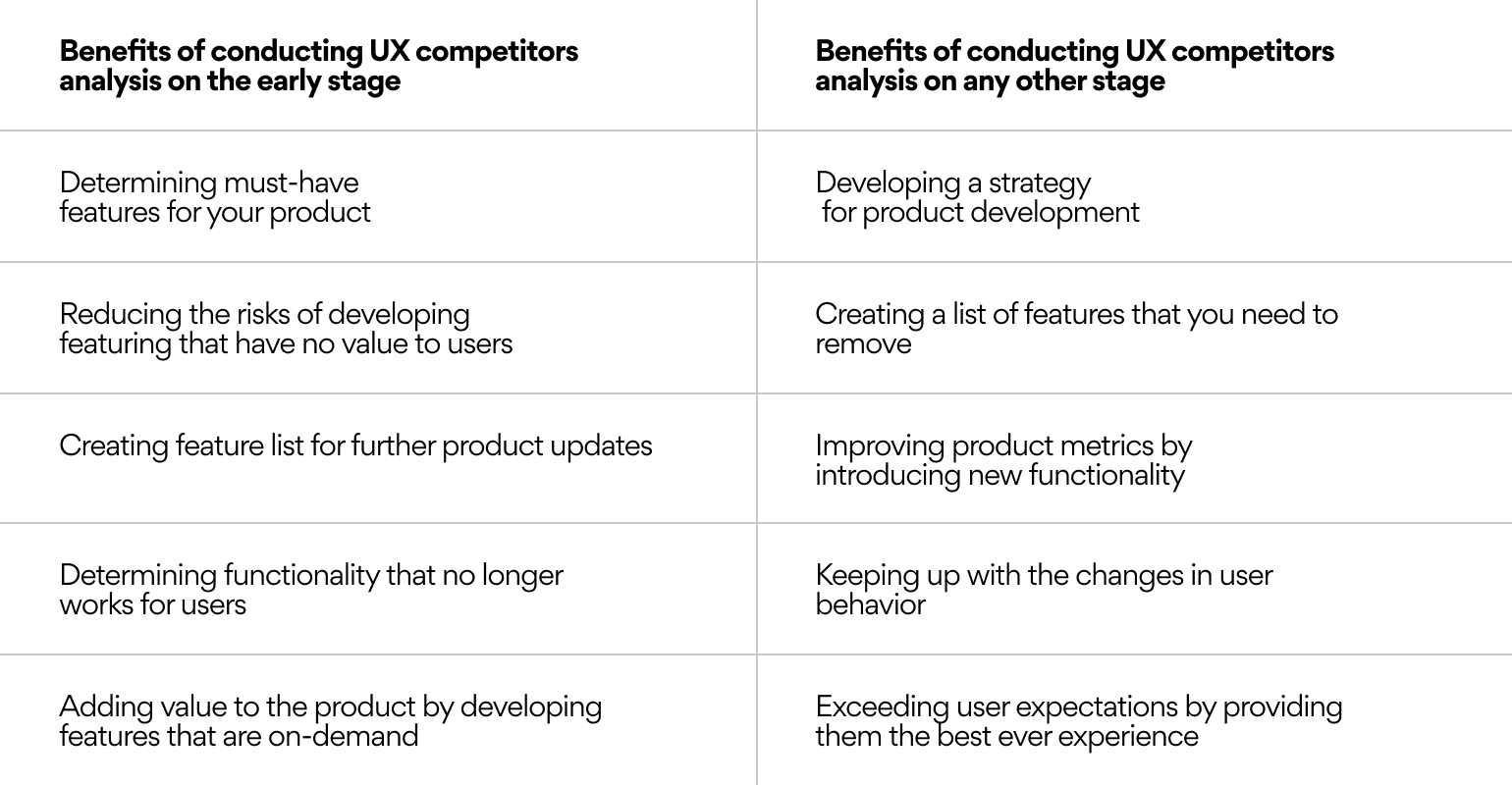
Competitive Comparison Analysis (26slide PowerPoint Presentation (PPT)) Flevy lupon.gov.ph
A UX competitor analysis is one of the best ways to gain deeper insight into your industry, product, and business. Done right, a UX competitor analysis will: Give you a better understanding of the competitive landscape. Provide actionable insights to guide your product strategy.
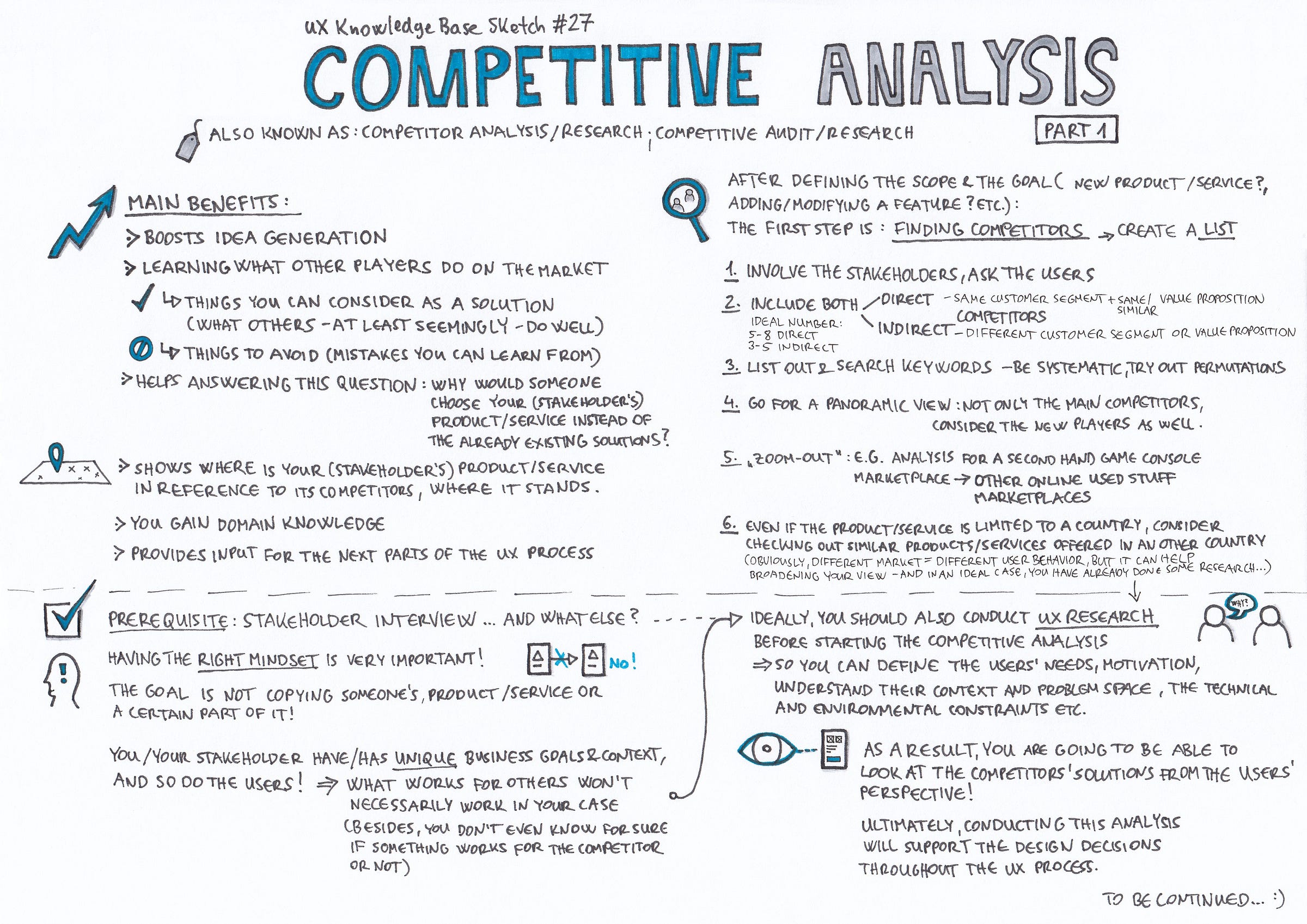
Competitive Analysis — Part 1 UX Knowledge Base Sketch
UX competitive analysis is the process of researching major competitors to gain insight into their UX performance. The goal is to improve your product's UX design by examining specific elements and features in competing products, looking for opportunities to better serve users, avoid common usability issues, and provide a competitive UX.
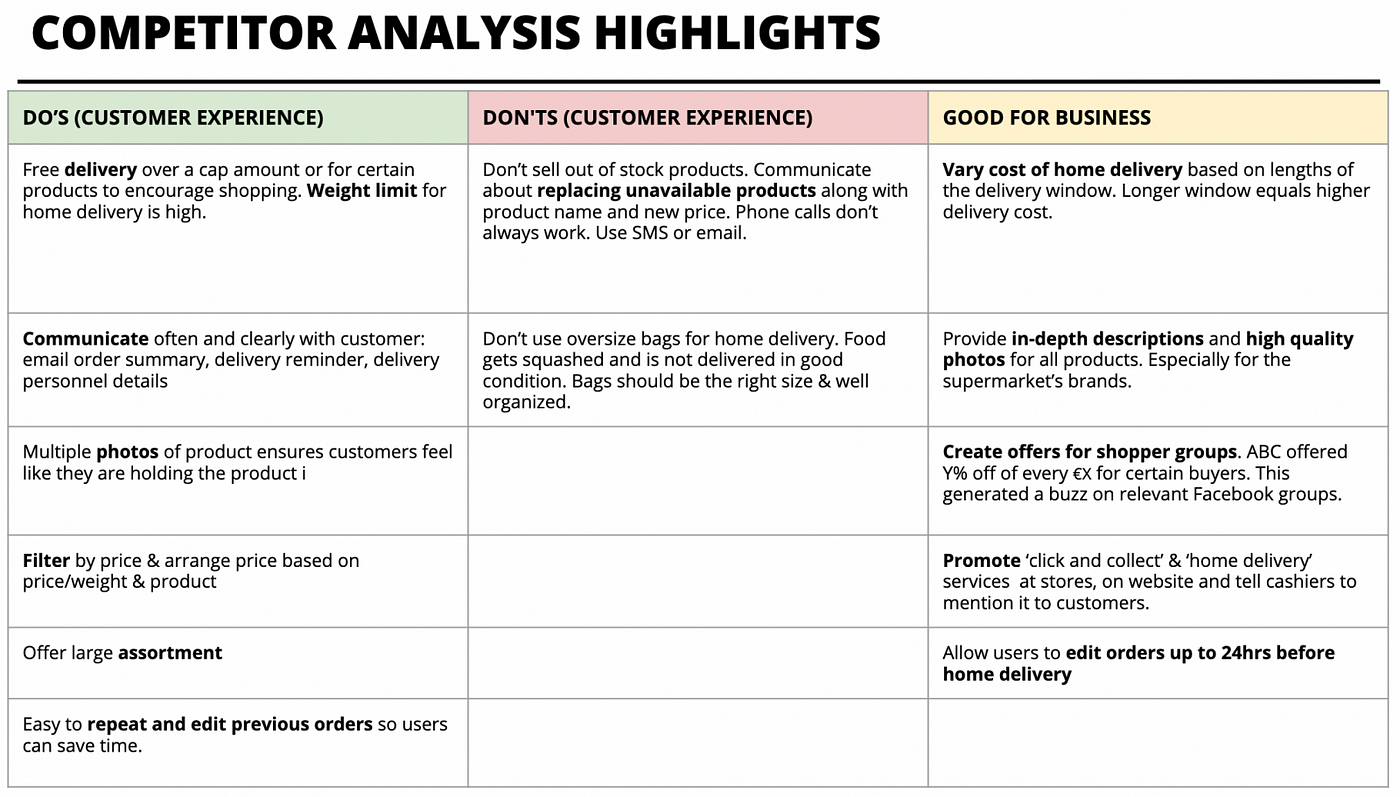
Going beyond the classic competitive analysis matrix — a UX case study by Smichel UX Collective
4 min read. ·. Jun 1, 2022. Pic from wave accounting. UX Competitive analysis is crucial to the research step of the design process. By analyzing competitor strategies and design solutions, you are more equipped to make your own more successful. Competitive audits can: Help create a foundation for design decisions or solve usability issues.